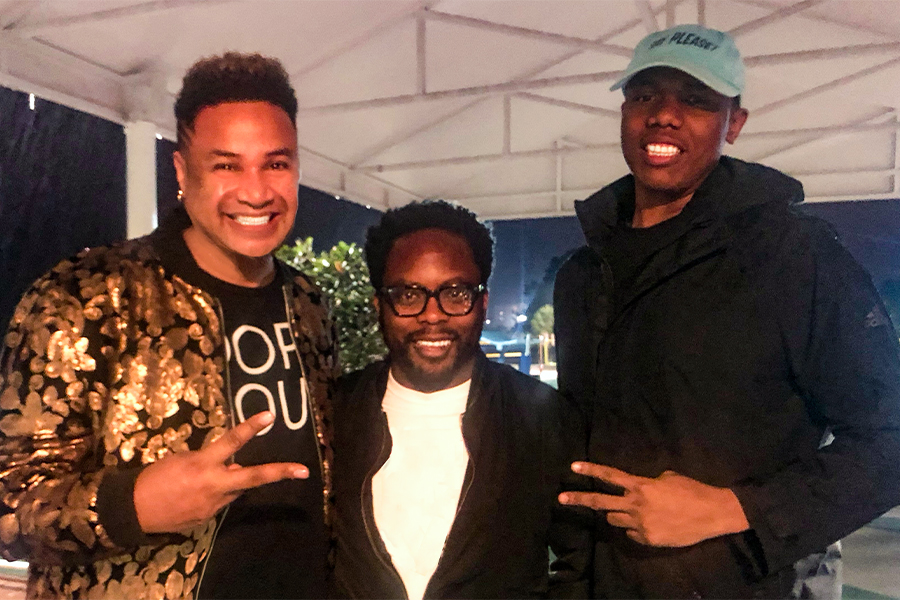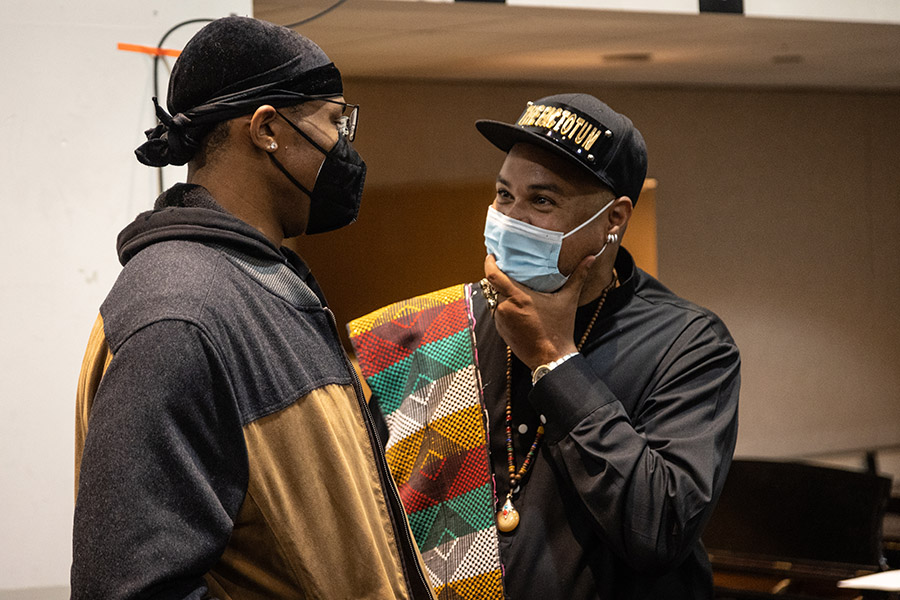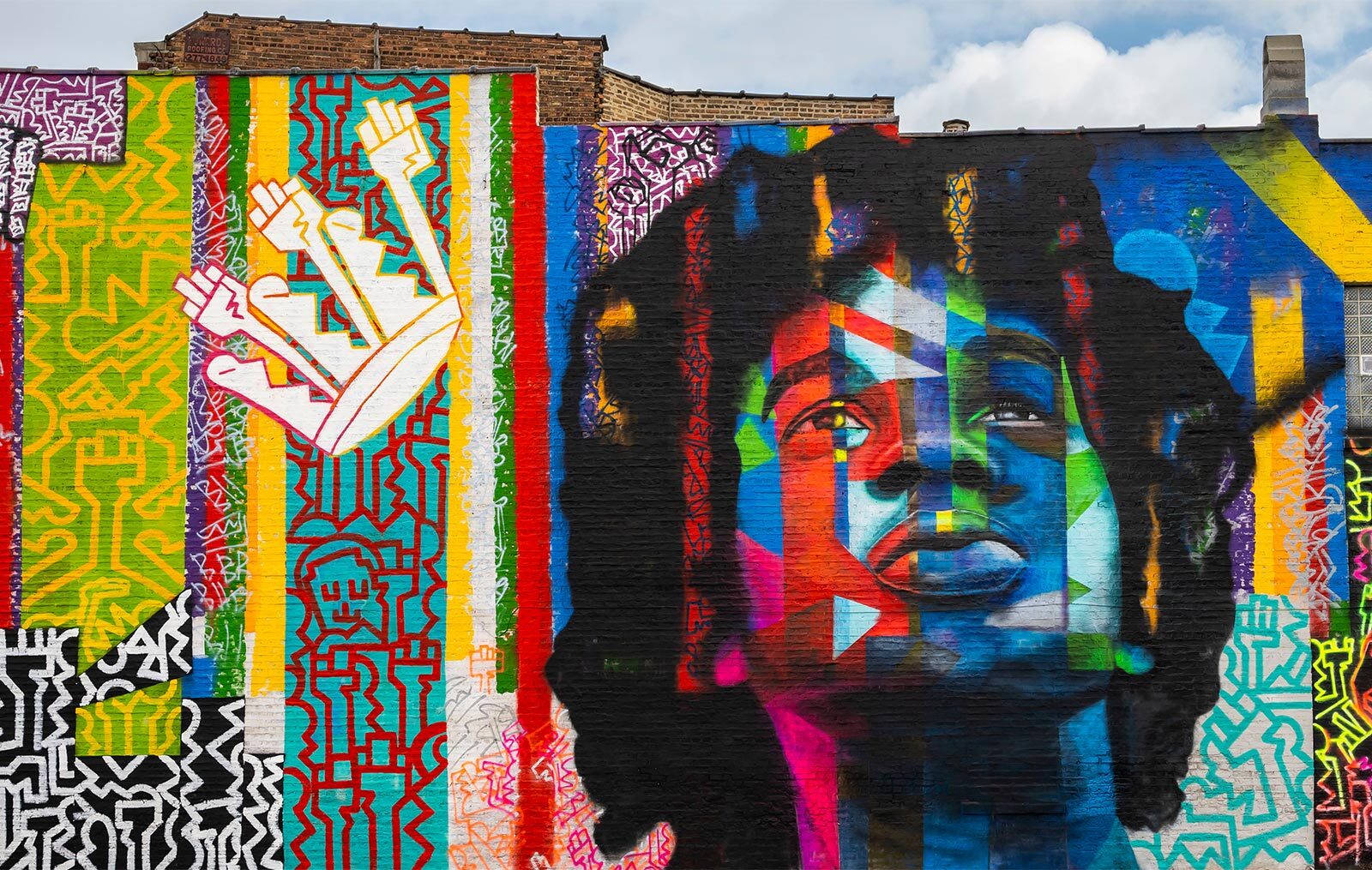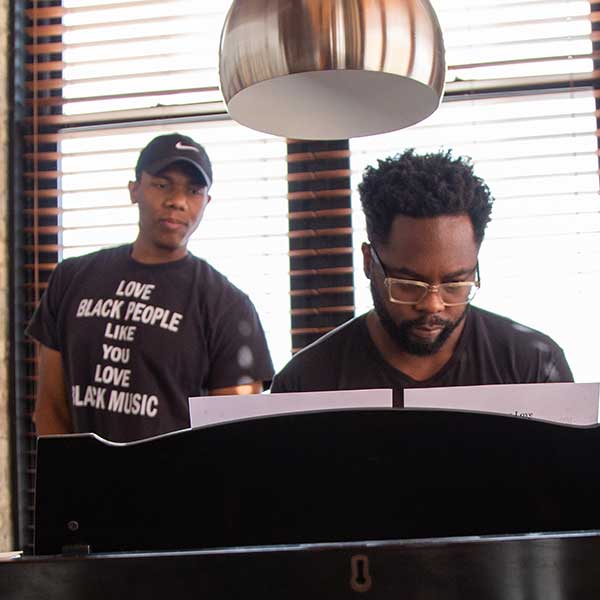January 23, 2023
Expanding the tradition
The Factotum celebrates Black joy, merges influences, and widens our view of what opera can be.
Like its title derived from Latin (fac: to do, to make; and totum: everything), The Factotum is an opera that crosses many traditional boundaries. It also brings together many previously unconnected things. The co-creators who made this “everything” opera are Will Liverman and Rocket Jackson, two artists who grew up knowing each other at the Governor’s School for the Arts in Virginia when they were voice students studying opera and music in high school. While Liverman stayed with opera, Jackson moved into jazz, hip hop, and production to become DJ King Rico. Both got their early music exposure in the Black church, primarily through gospel. Given their musical fluency, it is not surprising that The Factotum comprises a wide range of musical styles — almost a little of everything from gospel, barbershop quartet, R&B, and jazz to funk, hip hop, and trap.
The title character in Rossini’s Barber of Seville became a signature role early in Liverman’s career. While performing Figaro in different opera houses across the country, Liverman recounts, “what sparked the idea” for Factotum was “every time, no matter where you go on a gig, you’ve got to find the Black barbershop in town.” Chicago as the setting made sense; as an alumnus of Lyric Opera of Chicago’s Patrick G. and Shirley W. Ryan Center program, it is a place Liverman knows well.

Rajendra Ramoon Maharaj, Will Liverman, and DJ King Rico take a break during a working session last year.
Since Rossini’s Il Barbiere di Siviglia premiered at the Teatro Argentina in Rome in February of 1816, a lot has changed in how an opera is composed. Though in the nineteenth century the relationship between composers and librettists was frequently collaborative, there is little information about the connection between librettist Cesare Sterbini and Rossini (except for the opera Torvaldo e Dorliska, a Sterbini libretto Rossini had set the year before). The success of Barber is generally credited to the well-crafted Beaumarchais play it was based on.
While Rossini’s opera planted the seed for The Factotum, the full genesis of the opera has proved more collaborative than the Italian great could ever have imagined. Liverman and DJ King Rico have worked closely together to craft the story, write the music, and oversee many elements of the production. Both perform in the opera. Liverman takes the role of Mike, the head barber and co-owner, with his brother Garby, of Master Kutz, the barbershop left to them by their father. Jackson is on stage as the DJ controlling the electronics during the performance.
The opera borrows elements from musical theater in the creation of a “Book” that goes beyond the lyrics of the libretto and includes narrative about the characters, storyline, and structure. That piece is co-credited to Rajendra Ramoon Maharaj, who serves also as director and dramaturg. The collaborative compositional team was also expanded to include Marcus Norris as the orchestrator. The orchestra includes instruments that are familiar in opera as well as some new sounds: three saxophones (alto, tenor, and baritone), trumpet, trombone, five-part strings (with contrabass sometimes replaced by electric bass), drum set (with supplemental percussion including suspended cymbal and bass drum), piano (and electric keyboard), and electric as well as acoustic guitar. Additionally, DJ King Rico will play his electronic tracks (including a smattering of Barber quotations) during the performance.
References to musical theater are also included in the range of vocal styles employed. Yet rather than thinking of this show as crossing between or bending genres, this is an opera that is best explained as expanding the genre. Both lead co-creators, Liverman and Jackson, were trained as opera singers and are clear about how this is an opera that weaves in new influences. Jackson wanted to make sure that they were “able to communicate the Blackness within opera, in the sense of keeping the singers unapologetically operatic while being able to blend those two styles.”
“I really want to make sure that the performers, the operatic singers that we have singing, sing operatically,” Liverman says. “It’s not like some different sound or R&B sound.” During workshops, he would say, “Stay with the operatic voice,” and “Sing with your full voice as you would your Tosca aria. If you’re thinking patter, like a spoken-word, hip-hop thing, think of Rossini patter.”
Perhaps one of the most salient musical theater influences can be seen in the role of Cece, who is a dancer and has few conventional lyrically sung melodies. Yet once again, this can be seen as expanding the operatic tradition since of course dance (frequently ballet) has a long history of being paired with opera. Dance is featured in the pivotal work La muette de Portici (Auber, 1828), which led into the vastly popular nineteenth-century style of French grand opera. In Auber’s opera the title role of Fenella expresses herself entirely through dance, movement, and pantomime.
As in many early nineteenth-century operas (including Rossini’s Barber) and similar to most musical theater today, The Factotum features a two-act structure. The first half introduces the characters, setting, and conflict with unresolved issues highlighted in the first act finale. The second half frequently adds a big dramatic moment and a twist that helps find a way to restore a new peace. Like most Italian operas of its time, Barber opens with a chorus, in this case a men’s chorus that sets the scene for the Count’s serenade and then the boisterous entrance of Figaro. All of this happens outside of Dr. Bartolo’s villa, the central location for the action of the opera. The Factotum, too, opens with a men’s chorus — this time fashioned into a barbershop quartet of Old Heads: Bootleg Joe, Charlie (a barber), Leeroy (a bookie), and Sam, one of the regular customers. The drama sets Master Kutz as a community space where everyone is invited. Unlike the setting of Barber, where enforced boundaries keep the guarded heroine in and the unwanted suitor out, The Factotum’s barbershop is the central locale of the opera, welcoming all the public — both the characters and, in a metaphoric sense, the audience as well.
This is not to imply that there are no tensions, conflicts, or anxieties. The drama of the story is animated by the two brothers — Mike and Garby — who have inherited the barbershop from their father. They both have different talents for keeping the shop going.

Co-creator DJ King Rico (left) and Co-Book Writer, Director, and Dramaturg Rajendra Ramoon Maharaj (right)
Mike is concerned with sustaining the legacy tied to his memory of their father’s integrity. Garby is more of a pragmatist and has found some financial success in the underground economy that comes with risks and, as we learn early on, an increased police presence around the shop.
Near the end of the second act, there is a trenchant moment when the dramatic and musical worlds come together in a climactic scene. All the plot points collide at Rose’s EP release party. As Rose has her big moment and sings “Estoy Acqui” the whole cast is assembled, though with notable exceptions. Suspiciously, Garby is missing. Right after Rose’s number, Mike receives a text that Cece is in the hospital and her condition is precarious. The crowd on stage projects less the cacophonous confusion of a Rossinian finale and more the focused energy of a united community. Gathered together on stage in a formation that is resonant of both a protest and a church congregation, the community reacts in a double posture that speaks equally to their current situation and harkens back to the Civil Rights era, with signifiers of the past and present. CJ opens the scene with “What’s goin’ on?” — an allusion to the title track of Marvin Gaye’s celebrated 1971 album, a seminal work that captures the uncertainties and social difficulties of that time. References to MLK and the Dream speech, “Respect” for BIPOC sisters, and the words “We Shall Overcome” are interwoven throughout the number, along with the maxim “No justice, no peace.”
Suddenly Mike shifts the mood, while continuing the message of community solidarity. He cites 400 years of slavery, standing up for rights, and the work of Chicago-based Fred Hampton, who was assassinated while serving as the deputy chairman of the Black Panther Party. Mike promises “Cece gon’ be alright. We gon’ be alright,” and as Chantel takes up this line, he ends the scene with this meaningful and powerful phrase. These words, seemingly so simple and straightforward, have coded meanings. Reassuring in content to everyone, the phrase resonates especially strongly in Black music today. While those words have been used by other artists, a particularly notable case was by Kendrick Lamar on his 2015 album To Pimp a Butterfly. The track “Alright” (produced by Pharrell Williams and Sounwave) has gained special signification in the past few years and became a frequent de facto anthem at many Black Lives Matter rallies during the pandemic and beyond.
The Factotum has captured the resilient optimism of the 1960s combined with the more sardonic energy that has emerged in the first decades of this millennium. This opera extends as a bridge reaching back to Rossini’s Barber where Will Liverman, now reincarnated as a modern factotum, has led the charge for an updated classic. With Black and Latinx voices highlighted, we are ushered into a stylized, modern-day South Side Chicago barbershop with community drama and joy. Concurrently encompassing the past while making way for the future of opera, the sonic landscape of The Factotum sounds both familiar and breathtakingly new.

